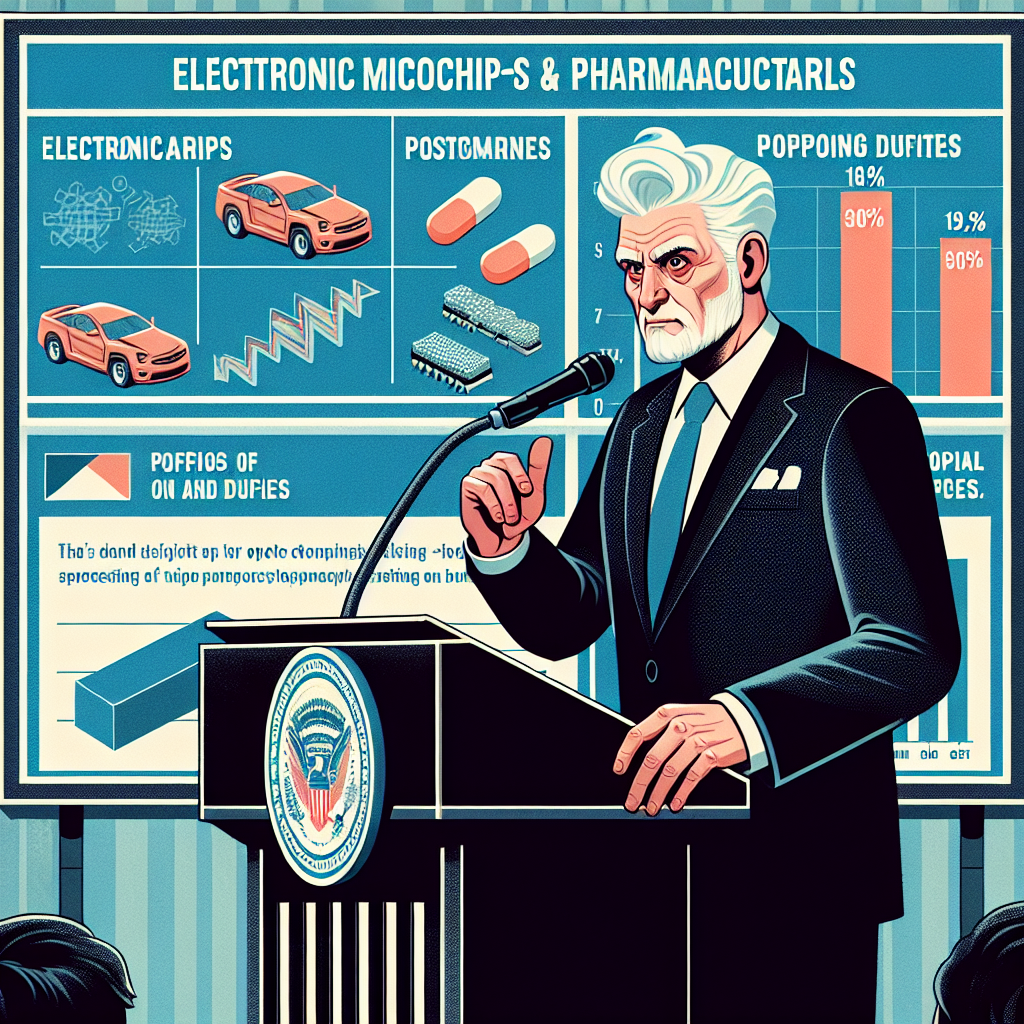Trump Proposes Tariffs on Chips and Drugs, Considers Delaying Auto Duties
Trump’s Economic Strategy: Tariffs and Trade Delays
Introduction
In a strategic move to bolster domestic industries, former President Donald Trump has proposed new tariffs targeting the semiconductor and pharmaceutical sectors. Additionally, he is contemplating a delay in imposing duties on the automotive industry. This dual approach aims to strengthen the U.S. economy while navigating complex international trade dynamics.
Proposed Tariffs on Chips and Drugs
Trump’s proposal focuses on two critical sectors:
- Semiconductors: By imposing tariffs on imported chips, the goal is to incentivize domestic production and reduce reliance on foreign manufacturers, particularly in Asia.
- Pharmaceuticals: Tariffs on imported drugs are intended to encourage the growth of the U.S. pharmaceutical industry, ensuring a more self-reliant supply chain for essential medications.
Consideration of Delaying Auto Duties
While tariffs on chips and drugs are being actively pursued, Trump is considering a delay in implementing duties on the automotive sector. This decision is influenced by several factors:
- Economic Impact: Immediate tariffs could disrupt the automotive supply chain, affecting both manufacturers and consumers.
- International Relations: Delaying duties may provide more time for negotiations with key trade partners, potentially leading to more favorable terms.
Conclusion
Trump’s proposed tariffs on semiconductors and pharmaceuticals, coupled with a potential delay in auto duties, reflect a strategic approach to enhancing U.S. economic resilience. By targeting key industries, the aim is to foster domestic growth while carefully managing international trade relationships. This multifaceted strategy underscores the complexities of balancing economic protectionism with global trade dynamics.













